By Hannah Owens |
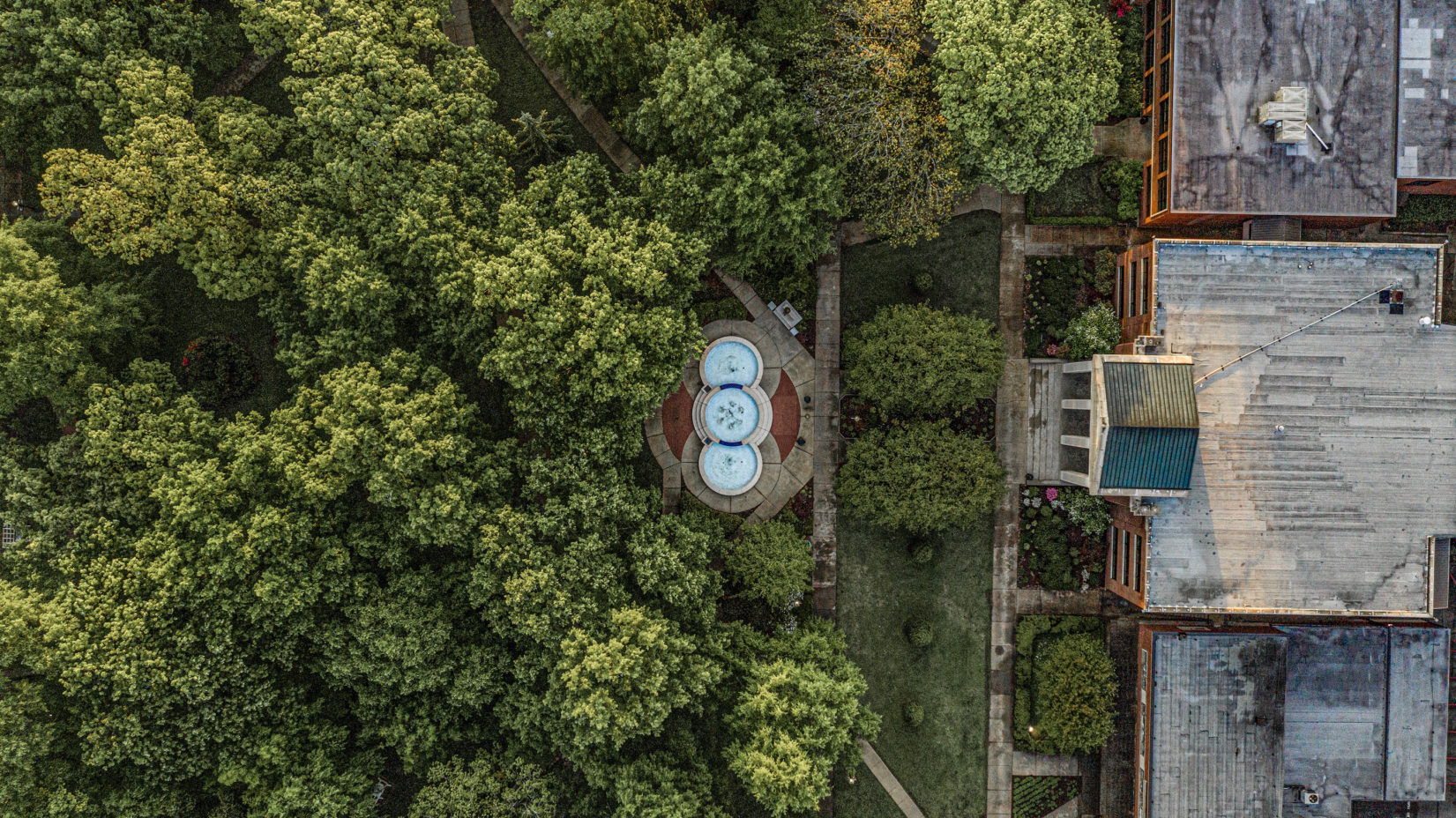
When I stepped into the office on April 16, 2020, it was like stepping back in time. Campus had been nearly empty for more than a month, but I made the trip to campus to complete this story assignment — I knew writing would be more meaningful in this place. The stack of The Bison newspapers we provide for visitors to our department was still neatly sitting on the coffee table. Before I even turned on the office lights, visible from the doorway were the words “Leaving Florence” under the masthead over a photo of Florence, Italy. The headline on that issue, stamped with a date of Feb. 28, wasn’t breaking news anymore, and so much has happened since that ink first dried. As I locked in on that space above the fold, in that moment it was like time was frozen. For the first time ever, students were not rushing to chapel, classrooms were empty, and we probably made the least amount of chicken biscuits we’ve ever made. Harding was still existing — still teaching, nurturing and providing — for its students, but those students were far away.
The first report of a person who tested positive for the novel 2019 coronavirus in the United States came Jan. 21, sending shockwaves through every industry across the country. But the top of the news hour was reserved for stories surrounding the virus in early January when the World Health Organization identified a surge in “pneumonia of unknown cause” in Wuhan, China. The world watched as this highly contagious strain of coronavirus, COVID-19, spread over city lines, international borders and continents. Words such as “uncertain,” “unprecedented” and “social distancing” defined this experience that tied every human on earth together. Health care workers stayed where they are every day — on the front lines of saving and preserving human life. Almost everyone else was instructed to stay home.
According to the WHO, “Coronaviruses are a large family of viruses which may cause illness in animals or humans. In humans, several coronaviruses are known to cause respiratory infections ranging from the common cold to more severe diseases.” COVID-19, a completely new coronavirus, was first discovered in a Chinese seafood and poultry market. WHO says person to person exchange of the virus occurs “through small droplets from the nose or mouth which are spread when a person with COVID-19 coughs or exhales.” The CDC and other health professionals communicated preventative measures like avoiding close contact with people, especially those who are sick; frequent hand washing; wearing a mask in public; cleaning and disinfecting surfaces often touched; and staying home.
Harding’s first decision as a result of COVID-19 came Feb. 26 when the announcement was made classes were suspended at its study abroad program in Florence, Italy. The University’s decision to suspend all on-ground classes was reported March 12 during spring break. Faculty began transitioning all course materials into online learning environments, and most students completed their coursework far from within the University’s classroom walls. University administrators monitored movement of the virus in addition to state and nationwide efforts to stop the spread to ensure Harding’s response aligned with guidelines and recommendations.
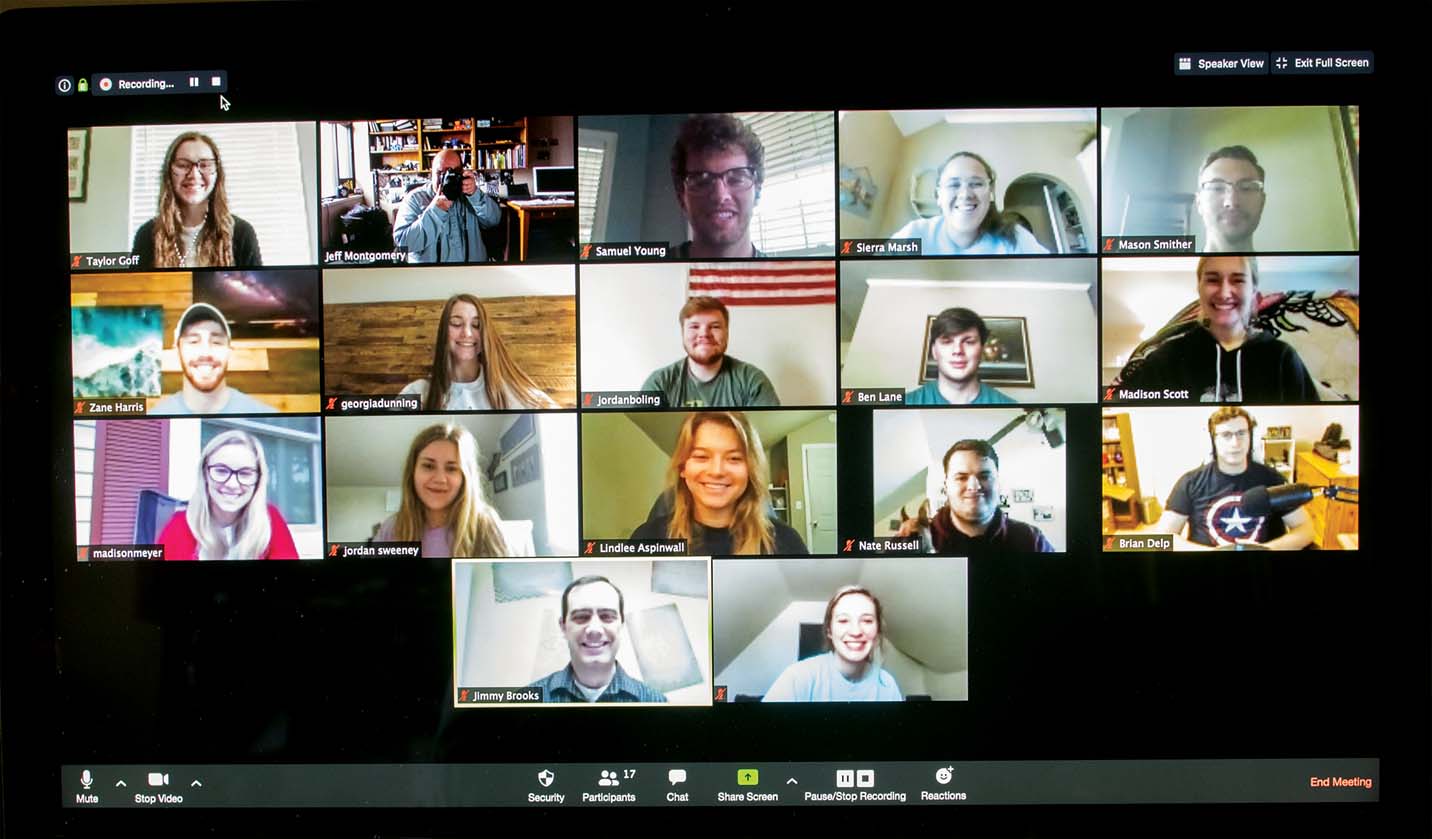
It was a spring without Spring Sing, sporting events and speakers. As classroom instruction went virtual, the effects of our empty campus reached far and wide. In the next few pages, several different voices of our community reflect on this time in history from their perspective.
Harding is a beautiful place, but this semester Harding was an experience that transcended a physical space. There were challenges and obstacles to overcome, but chapel on social media was no less thoughtful, classes were no less prepared for, and relationships were no less meaningful. As a writer for Harding magazine, I’ve interviewed many people — students, faculty, staff and alumni. The one question people have the most common answer to is, “What makes Harding so special?” “The people,” most say. Harding operated completely at a distance for the first time ever in spring 2020, but people — faculty, staff, students, alumni — continued to do what they do to make Harding the truly special place it is. It’s great to be at Harding, even at home.
Editor’s Note: Hannah Owens, director of digital media, has been a vital part of the magazine staff since 2011. Her contributions will be sorely missed as she left the University in May for a new position.

When asked to write a piece for this magazine about my international experience at Harding University Florence being cut short due to COVID-19, I was overwhelmed with what I could talk about. There of course have been negative effects to coming home so early from Italy, but I am focusing attention on how I’ve twisted the negative into something positive by turning the whole situation to my benefit these past couple of months.
To provide an idea of what transpired leading up to us leaving, students received the news that the campus in Italy was being shut down in late February just three weeks after we arrived in the country. After being told the news, we spent our last few days in Florence visiting museums, churches and, most importantly, discovering as many new gelato shops as possible before going to the airport in Rome. To end the experience, the amazing staff threw a banquet for everyone, which is something students usually throw for staff at the end of each semester. It was such an emotional, raw and perfect way to end our time with each other.
I want to make one thing unambiguous. Though our time abroad was reduced substantially, those three weeks were the most enriching and rewarding weeks of my life. The kindness, support and love that exuded from our director had profound effects on our attitudes toward embracing everything foreign that we encountered. We got to know the locals, we learned about the art and history of the city, but what I’ll always remember and what I took away from Robbie (Shackelford) is to aggressively seek beauty every day. We all took this advice and remembered it as we walked into buildings with magnificent architecture, but we also remembered to seek beauty in something as simple as a grocery store or a coffee shop.
As I wake up every morning in my house in Colorado, I try to seek beauty in every way possible. Because of the virus, I’ve learned a few new songs on the piano, I’m starting to read much more than I used to, and I’ve learned that cooking has easily become one of my favorite pastimes.
I’m also discovering that this time with my family is precious and that I should cherish every moment while I can. If you think about it, how often does the entire world come to a halt and you get to spend time with the ones you love the most? I’ve used this time since coming home to discover new things about myself and learned not to view this experience as an impediment but to see it as a rare opportunity for growth. I hope others are doing the same. Next time you wake up, wake up with this in mind and it will change your entire attitude for the rest of your day: Aggressively seek beauty!
Jake Riggs , April 22
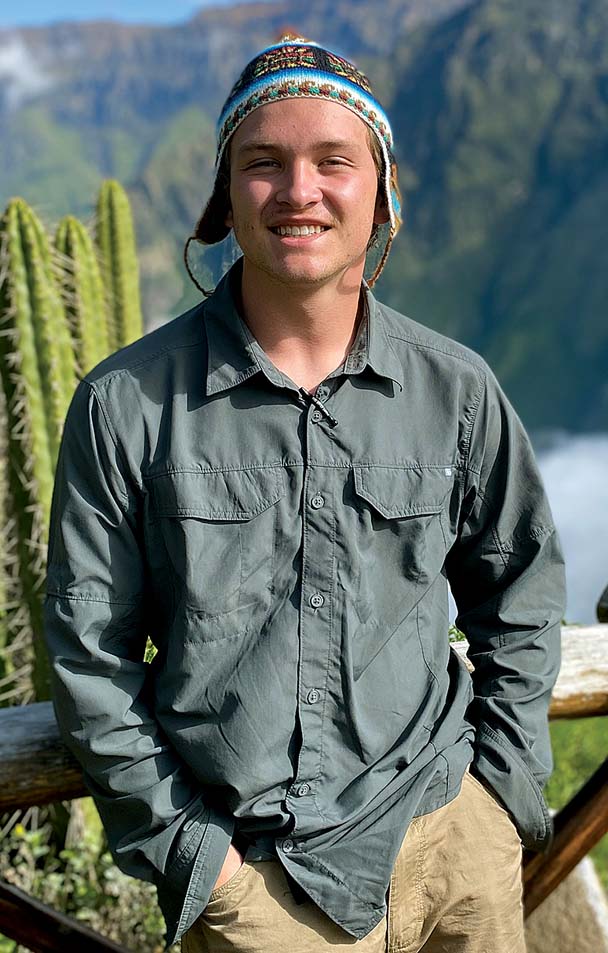
Peru update: Thank you everyone for your prayers and encouraging words! We are having quite the time as we navigate uncertain times, but we are making the most of it with plenty of love and community!
Every day of the past week has potentially been our “last day” as many people have been working hard to get us flights back. I’m so thankful (especially for our director and Harding’s abroad programs) for being so diligent and hardworking!
Once again, tomorrow may be the day. The MOST LIKELY course of action will be to get on a bus in the afternoon for an 18-hour ride to Lima. We’ll stay in a hotel until our chartered flight to the U.S. leaves on Sunday.
Again, this is OUR plan, and something we’re learning is that OUR plans are not fail proof. We’re all in a much bigger plan, and I’m so grateful for each step of the plan we’ve been a part of. On this trip, we’ve seen things with the least likely probability occur despite their improbability. From a worldwide virus to being called back home, to the descent of a random fog, to unfortunate typos in an important document, to the daily question of if we’d be granted permission to travel — I am learning that what I want to happen and what I think is the best way are not things I can hold fast to.
That’s the end of the update, keep reading for a piece of my heart.
Thank you for your prayers. We are not one more thing to worry about. There are too many things that are clamoring for front and center attention right now. Instead, take hold of what you know to be true and hold fast! We hold His hand, and He is guiding us everywhere we go. We have an opportunity to grow through crisis. Lean into the lessons being shown to you. Instead of asking “Why?” I dare you to ask “What?” What are you being shown, what can you learn, what are you hoping in?
I’m so broken, but I’m so redeemed.
Grant Countess
,
March 26 Facebook post
The HULA group arrived in the U.S. March 30.
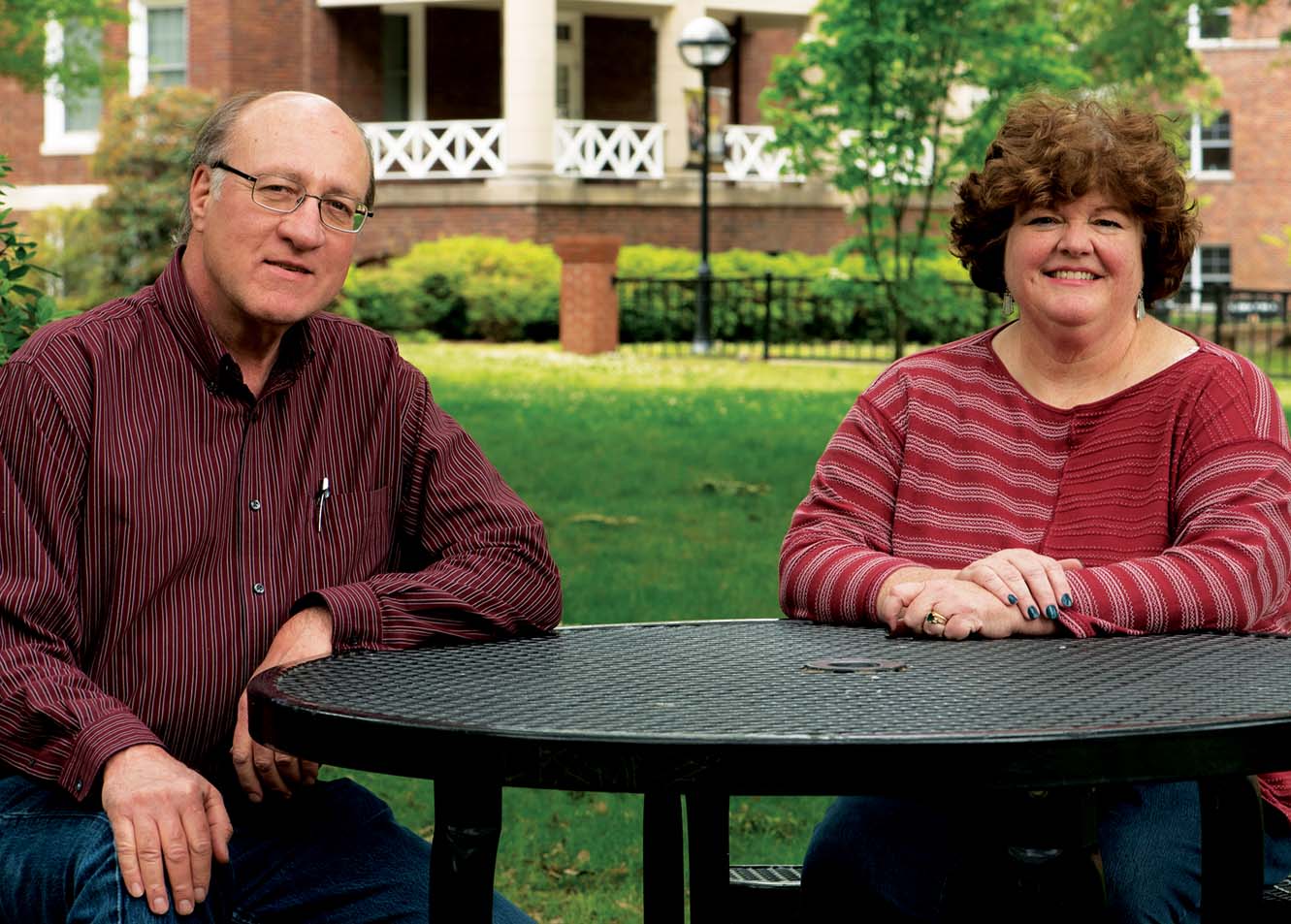
In the transition to teaching online , concern for our students has been the overriding theme, and we have been able to gauge what our students are feeling through the experiences of our own children. One, a college freshman, feels the loss of friends and community, her routine and her independence. She returned home to a world that feels a little too much like high school. Our younger daughter watches the milestones of her senior year of high school being clipped away like the limbs of a pruned tree: Her final theatre production, prom, senior ceremonies at school and church, and graduation. Questions about the future dog her as she weighs college options. It’s easy to project their sense of loss, fear, isolation and anger onto our own students.
Our efforts have been devoted to retooling our syllabi to make sure that important student learning outcomes are met, to learning new technologies like Zoom and the finer points of Canvas (Harding’s learning management platform), to finding ways to do things we take for granted in face-to-face interactions, to managing the emotional and technical disruptions faced by our students. Nursing faculty have faced moving from hospital-based clinical hours to virtual, case-study-based clinical hours, no easy task. This all comes with the emotional drain of empty buildings and closed office doors and canceling the events that highlight the spring semester, such as seeing alumni at Spring Sing, celebrating graduates at senior award ceremonies, and meeting prospective students in person.
The shift to online has been hard for professors of composition classes, and they’ve accommodated by reviewing essay drafts over Zoom and Facetime and tracking changes in Word files, a labor-intensive process. I have been fortunate to offer my English classes synchronously, since they are discussion based, but as I launched the first Zoom meeting, I wondered if my students would attend, and if my plans were even feasible through cameras and internet connections. But the class began, and my picture was joined by students logging in, their faces accumulating on the screen like “The Brady Bunch.” And I saw that they were OK, and in fact they were happy to see me and one another, and we began class and did the best we could do to make this new normal work. Seeing my students’ faces pop onto the screen, hearing
their voices, replying to their comments and questions, brought tears to my eyes because interacting with students is the best reason for choosing this line of work.
In the College of Nursing, classes quickly moved to Zoom and/or recorded Echo lectures. Faculty have become creative by filming their own cases in our state-of-the-art simulation labs. Textbook publishers, especially Elsevier and F.A. Davis, scrambled to provide faculty and students with resources at discounted rates or even free of charge. Like Terry, seeing my students has been extremely emotional and I cried the first time we met via Zoom. The College of Nursing has many alumni working on the front lines of this pandemic. The faculty walk the halls, looking at class composites and praying for our alumni, along with all health care professionals, who are working to save lives and serve the Lord.
Dr. Terry Engel
,
English department chair
Dr. Lisa Engel (’88)
,
Carr College of Nursing associate professor
April 13
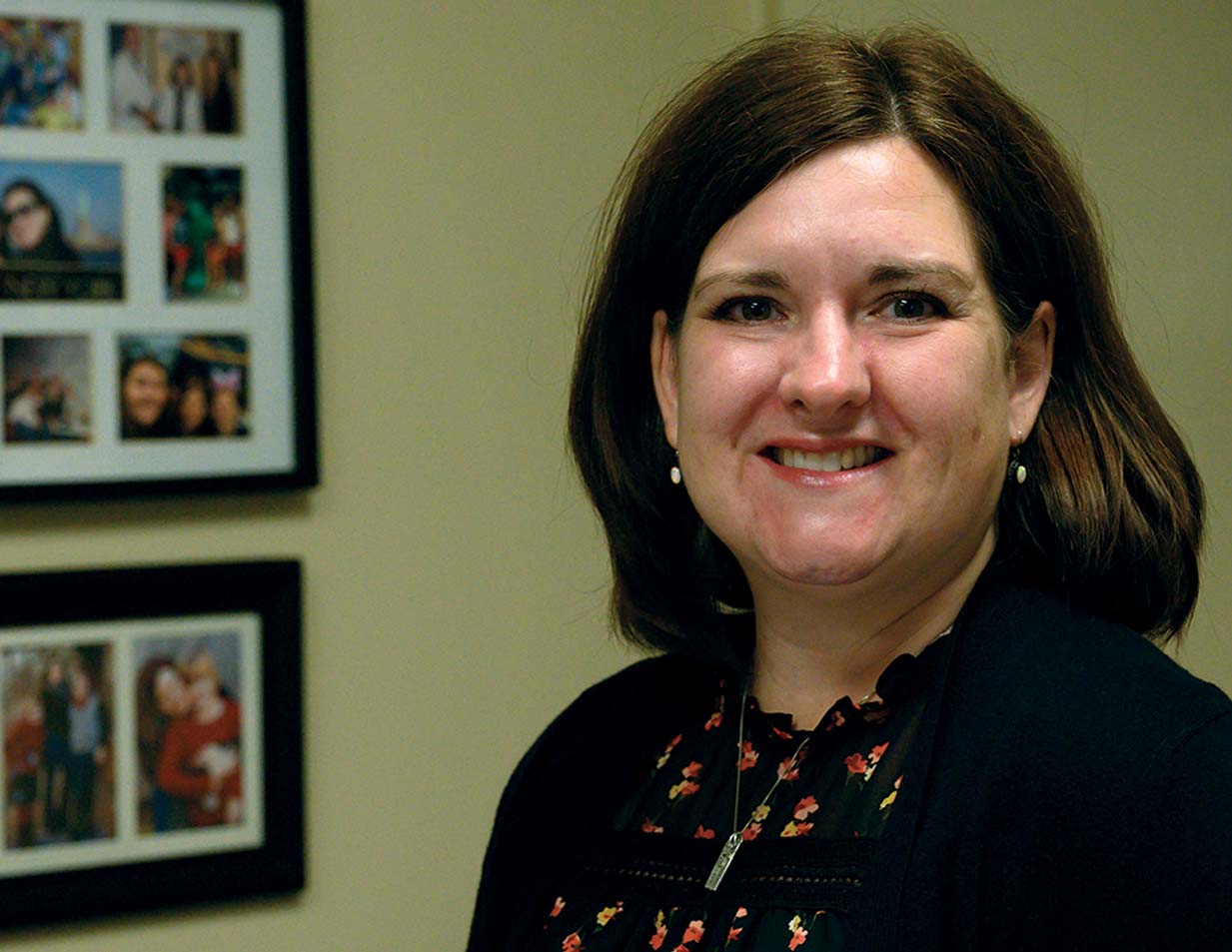
The end of the spring semester has certainly not played out as anticipated for either students or teachers at Harding University. As I taught my last class before spring break, I chatted with my students about their plans, encouraged them to get some much-needed rest, and looked forward to seeing them in one short week. I didn’t expect that it would be many months before I saw them again.
As I’ve talked with both graduate and undergraduate students, I hear many of the same concerns. Spotty internet, missing motivation and elusive time management skills are common challenges for students across all levels of learning. In addition to these hurdles, graduate students are facing other worries. In our master’s program for speech-language pathology, graduates must demonstrate academic knowledge and clinical skills across a wide scope of practice before they are eligible for professional credentials. They also must log a minimum of 400 hours of direct client contact.
To assist in meeting these requirements, externship placements are a significant part of our training program. As concern over the novel coronavirus increased over break, many sites where SLP students were placed for externships were not able to continue supervising our students. These decisions left students and faculty looking for valid and creative ways to help students complete requirements for licensure. The timeline has been especially tight for our May graduates, many of whom have already accepted jobs around the state and nation.
To meet these challenges, we have utilized our willing community partners to a larger degree than ever before. Speech pathologists whose settings have continued to allow students have embraced them with open arms and been willing to heavily invest in their training. We are utilizing an online simulation platform and have invested in some new technology to help our students develop skills they won’t have time to get in their externships this year. Our on-campus speech clinic is now providing teletherapy to clients of all ages who were previously being seen in the clinic, at Harding Academy, or in other clinics around the state. Our clinic is free, so we don’t have to deal with insurance issues that can make service delivery challenging in other places. Making these changes quickly has allowed us to keep these students on track for an on-time graduation — we are all very proud of that.
My role in academia during this experience has revealed numerous strengths and blessings I might not have seen in absence of a global pandemic. I am so proud of the CSD faculty and the creative diligence they’ve shown in support of our students. Faculty have gone above and beyond all expectations to help our students graduate on time without sacrificing the quality of their training. Our students have demonstrated a determination and resilience they might not have known they possessed. I see students advocating for themselves and paying close attention to the national dialogue surrounding changing practice patterns, infection control and quickly-evolving evidence to support best practices in patient care. Faculty are utilizing new technologies and finding additional ways to deliver course content. While I hope we never live through another pandemic, the resourcefulness and flexibility that’s being uncovered now will undoubtedly serve each of us well when life returns to normal.
Dr. Melanie Meeker (’95) , Communication Sciences and Disorders chair, April 9
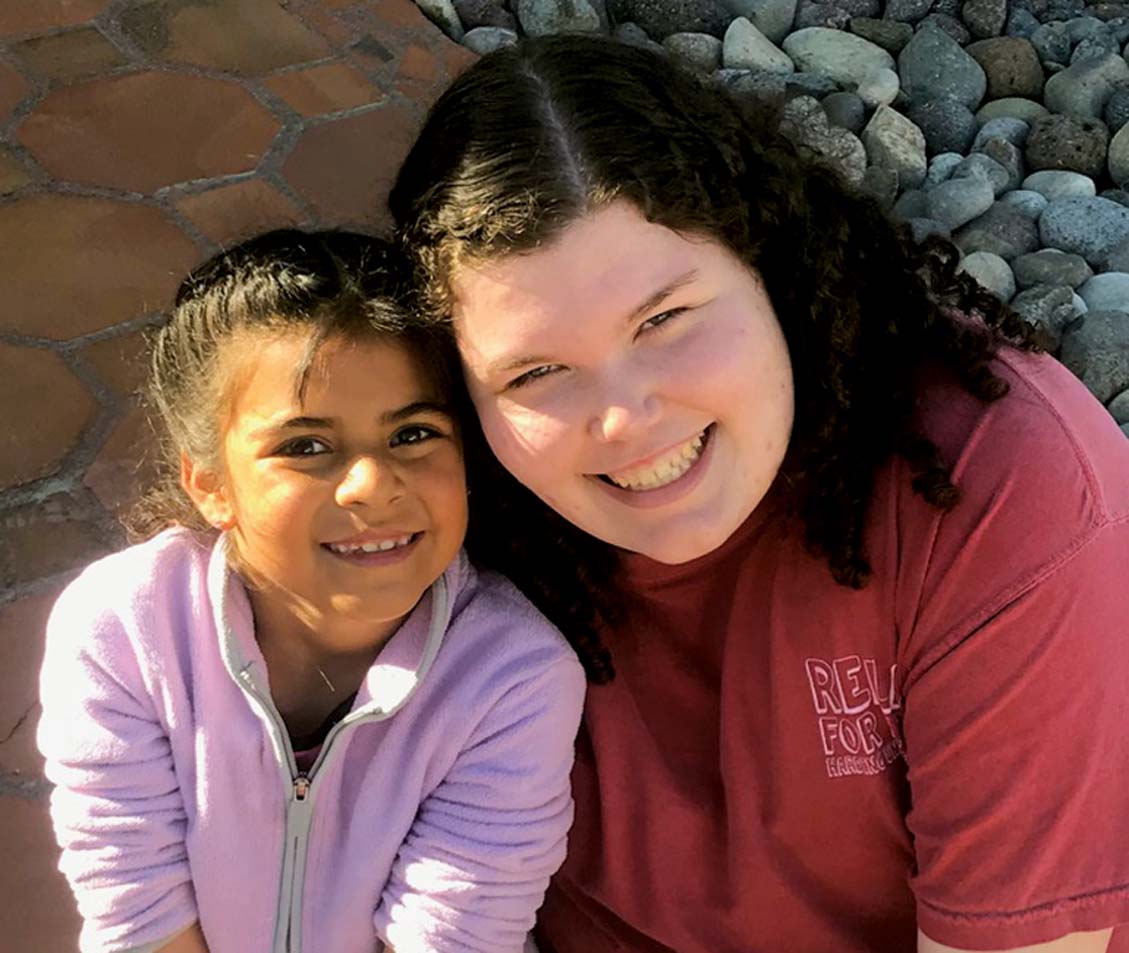
Like many around the nation , my recent travel plans were canceled at the last minute. I had planned to spend my spring break serving the residents of the City of Children in Ensenada, Mexico. However, my mission group was told that due to concerns regarding the spread of COVID-19, there may be potential border closures. The University, desiring to keep our group safe, decided it was not prudent for us to travel to Mexico at this time. Those of our number who had not been before were disappointed. Others, like me, who had been able to work with the people at the City of Children before were heartbroken. It wasn’t because preparations for our time there had been in vain. Rather, it was the lost chance to see those sweet children and help those seeking to take care of them and teach them more about God.
Last year was my first time to go on a Harding-sponsored spring break mission trip to the City of Children. Several of my close friends, knowing how much I enjoy being with children, had asked me to join their group heading to Ensenada. They were not mistaken. As an elementary education major, I thoroughly enjoyed preparing materials and lessons for our time there and spending spring break forming relationships with those precious children. That’s why I was so excited to return this year and see them all again! Even though we spoke different languages, we were still able to interact with one another and build friendships — not to mention the fact that their precious smiles could melt your heart. I began looking forward to returning this year as soon as our group left last March.
Next year at this time, I will be in the middle of my student teaching semester with graduation only a couple of months away, making this my last opportunity to go on a spring break mission trip as an undergraduate student. However, you can be sure that I will be looking for other chances to go back to the City of Children.
Plans change. Things far beyond our control happen, but one thing remains the same — God’s love for us. He will see us through this time of uncertainty and will provide for the City of Children in the absence of foreign helpers. Of that I am certain, no matter the circumstance.
Briley Saunders , April 12
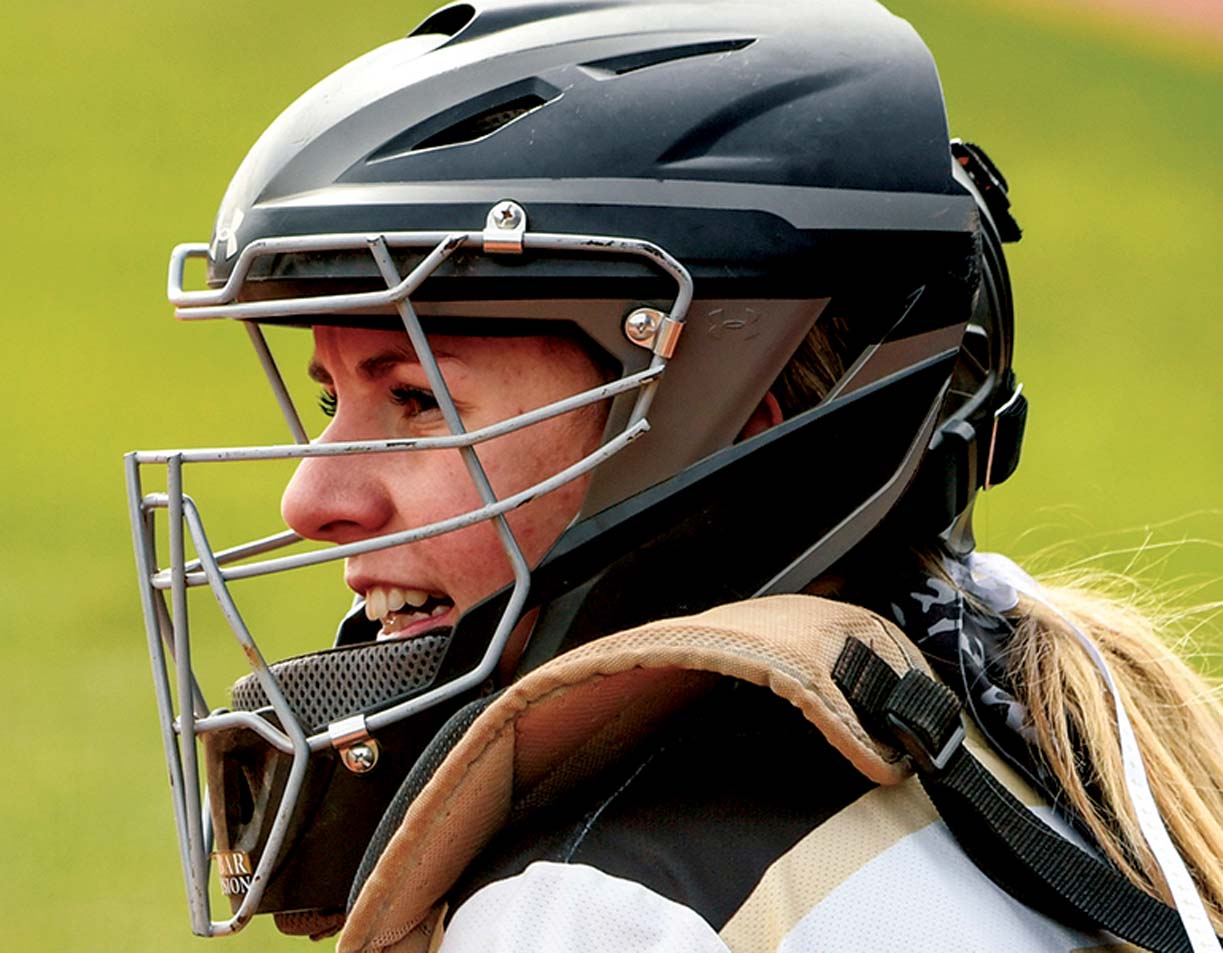
On Thursday , March 12, 2020, the entire college sports world came to a halt, including the immediate suspension of all Great American Conference games.
The previous Monday, March 9, everything seemed normal. We were going to head to Oklahoma Baptist University on Thursday, play four games, and come back home late Saturday night. We practiced like normal on Tuesday amid growing concerns about the virus and what was going to happen. Wednesday, the whole team heard about March Madness and the teams playing with no crowd. Thursday, we went out to practice, wondering if it would be our last.
As a senior, I was terrified. I may have played my last game of softball ever, and I did not even know it at the time. We all felt so many emotions that day. My fellow seniors and I were in shock when head coach Phil Berry broke the news. He told us at the beginning of practice to think of it as the last one. It was overwhelming in so many ways. We also got news of the Harding campus shutting down and transitioning to online.
People in sports always say, “Play every game like it’s going to be your last.” As athletes, we hear it so often, but we don’t truly understand what it means. For most of us, we know when our last game is going to be. At least, we think we know. My last game of my senior season had already been played in Durant, Oklahoma, against Southeastern Oklahoma.
Harding softball had five seniors this year whose final season was cut short: Katie Carney, Lindsey Duncan, Aidan Nichols, Mary Mills Lochala and me. This group of seniors poured everything we had into Lady Bison softball, and we wanted to accomplish so much. Katie, Lindsey and I had been at Harding since our freshman year. We were a part of the team that won a conference championship, hosted and won a regional, and hosted a super regional. We were one out away from heading to the world series. Aidan joined us in 2018 and made an immediate impact on the team. Mary Mills joined us in 2019 and brought her passion for the game.
Soon after the cancellation of the season, we waited to hear about eligibility relief for spring sport seniors. We found out that Division II was allowing seniors to return for a fifth year. While the other seniors already have jobs lined up and weddings to plan, I have decided to come back for a fifth year and start my Master of Business Administration through Harding. We will be honoring the four seniors at Family Weekend in the fall.
I can’t wait to see what Harding softball accomplishes during the 2021 season. This whole situation has enhanced my mindset. Every time I step on the field next year, I will not take it for granted. I want to play my last season for my group of seniors who didn’t get to finish theirs.
Briley Feringa , April 10
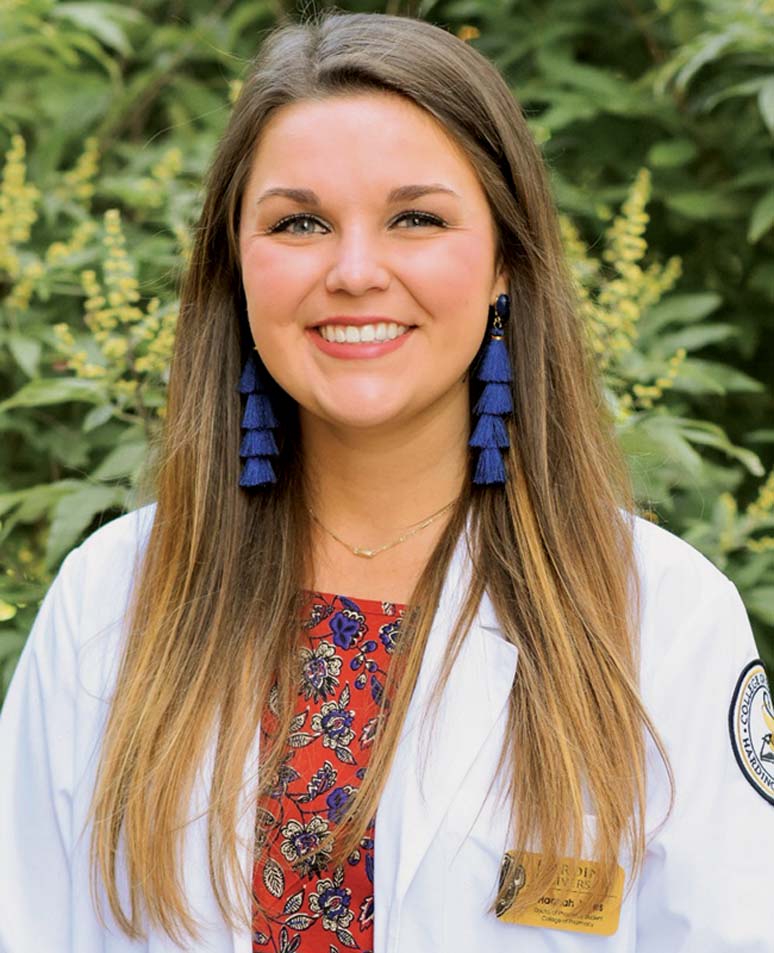
My COVID-19 experience is quite different compared to that of my friends and family. I started college at Harding in the fall of 2016. I was accepted into the Harding College of Pharmacy in the fall of 2018 and began coursework this past August. I chose to spend my senior year at Harding pursuing my first year of a doctoral program — a very unique situation! For the most part, my life remained normal. I was still active in my social club, Ju Go Ju, attended semiformal, and studied on campus at Starbucks with my friends.
I knew the coronavirus was bad as soon as the HUF Spring 2020 group was sent home. I spent spring 2018 in Florence and couldn’t believe their experience had been taken in the blink of an eye. I went on with life as normal and didn’t think much of the COVID-19 threat.
As my friends were in their last few months of college, we spent our senior spring break at Blue Mountain Beach in Santa Rosa, Florida. We had the trip planned for months. However, everything changed for me on March 12. My friends and I were sitting on the beach when we received an email from Dr. McLarty that school would be held online indefinitely. Reality hit me like a ton of bricks.
Since I was in pharmacy school, my lasts of college weren’t really over. Technically they were, but since I had 3 ½ years of school ahead of me, I wasn’t in the same position as my friends. I wasn’t in search of a job or an apartment to live in like all of my 14 friends on the trip with me. They were devastated. Wedding showers, social club formals and our last Spring Sing were taken from us. It was a hard reality to face. We were forced to say our goodbyes and depart forever without a graduation to celebrate or senior tea (a Ju Go Ju tradition) to commemorate our four years in the social club that gave so much to us. It was very sad and surreal.
As we parted ways and began our new normals at home, my normal didn’t really change. As a pharmacy intern at Walgreens in Searcy, I went on with life as normal, working long hours in the pharmacy with the fear of contracting COVID-19 through each person I encountered. I have actually been working almost full time since COVID-19 hit Arkansas. We have changed many policies at Walgreens, but every time I walk in the store I remain terrified of catching the virus. While everyone else gets to shelter in place safely in their own homes, I cannot. I am on the front lines of this pandemic. It is scary and it is real.
My professors, classmates and friends have been so encouraging and uplifting during this time. I am so happy that I chose Harding to continue my education to become a pharmacist. The only thing getting me through this time is my faith. God remains in control and I confide in that. A verse that I have kept close to my heart during this time is Philippians 4:6-7, “Do not be anxious about anything, but in every situation, by prayer and petition, with thanksgiving, present your requests to God. And the peace of God, which transcends all understanding, will guard your hearts and your minds in Christ Jesus.”
Hannah Jones , Pharm.D. candidate class of 2023, April 2
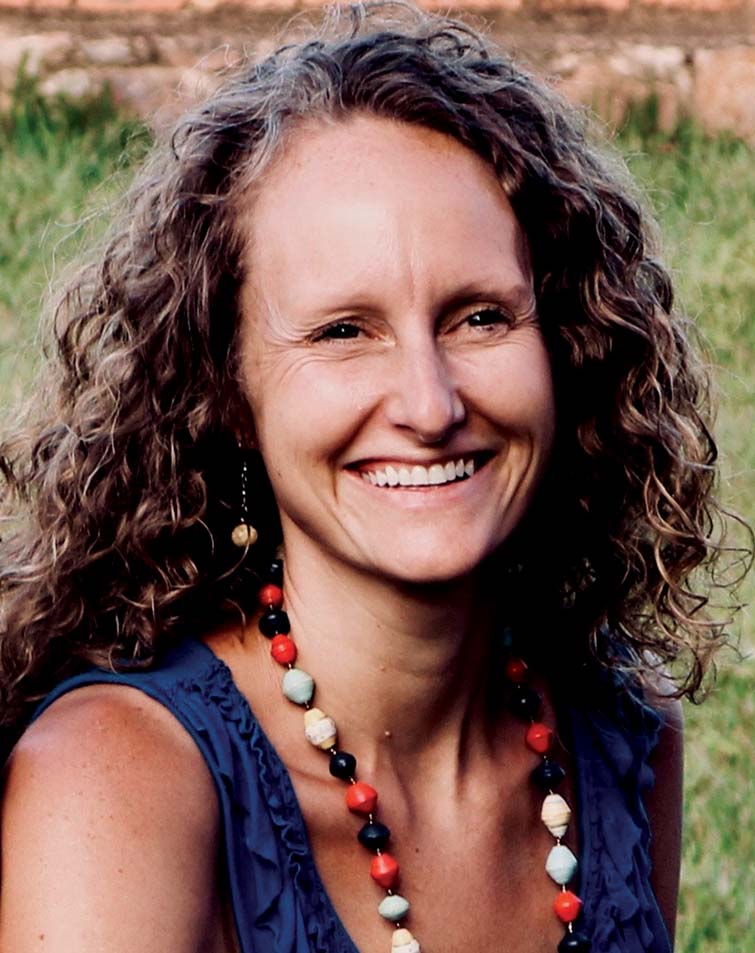
March 5
I landed in Dallas to work some labor and delivery shifts to aid in our ability to get a home loan. This was a step in the preparation process as we transition back to America in June 2020. I was supposed to be here for two weeks.
Then the coronavirus exponentially wreaked havoc across the world.
March 20
We learned that my flight back to Rwanda was cancelled. Rwanda closed its borders and suspended air travel, leaving me trapped here and my family across the world.
When U.S. embassy staff and Peace Corp volunteers were recalled from Rwanda and evacuated to the U.S., the urgency began to rear its head.
Then the word “indefinite” began circulating from our U.S. Embassy referencing Rwanda’s closure. This terminology meant our family could potentially be separated for many months.
March 21
The most logical yet gut-wrenching decision was to have Eric and the kids depart Rwanda immediately.
Within 24 hours Eric packed up our entire home and life in six boxes to depart on one of the (if not THE) last flights departing the country. My enneagram type one and perfectionism took a big hit here not to be personally present to urgently pack our entire home and life. Far from ideal. Eric walked around the house videoing while asking what I wanted to keep ... uh all of it. But not possible.
Meaningful goodbyes, visiting places one last time, hugging friends and so much more were not an option.
The last 24 hours have been unexpected, emotional and trying. This abrupt departure has been brutal; we never imagined eight years of mission work overseas ending like this. We’ve read the books, listened to seminars, and learned from others all about “leaving well.” Apparently we failed to factor in a world pandemic to our carefully planned exit.
Oddly enough, back in 2012, when we first stepped foot off the plane as long-term missionaries on foreign soil, we were in Wuhan. We were later led to Rwanda after being in China for several years. What a treasured journey this has been.
The guys are currently flying in the air. I told the kids that it’s not a matter of IF they’ll come in direct contact with corona but how many times as they travel internationally.
Upon landing, they will quarantine for two weeks at a dear friend’s lake house in Texas. Would you believe our friends hurriedly prepared the place and stocked it with some groceries in advance of them arriving?
Next they’ll visit family and we’re not sure what things look like beyond that.
I am in NYC working a crisis response assignment and begin tomorrow. It’s a ghost town here as I’m sure most places are at this point. A local guy here told me, “Nurses are the firefighters of 9/11,” which was like a punch to the gut.
FEMA has brought in hundreds of nurses. We’ve been told we’ll be in a hospital setting or drive-thru testing site. I have no idea what I’m walking into. OK, I have some idea based on the media.
I walked to get groceries from my hotel and Times Square is empty. It’s surreal. Oh, how I ache for the homeless, addicted and those with mental health issues living on the streets. I walked past several with a strong cough and also know that living in community is so dangerous for them. Yesterday the news reported one New Yorker dying per hour here.
I have a small arsenal of essential oils that I’ve been practically bathing in and dousing the inside of my face mask with. Ginger shots, eating gluten free/sugar free, probiotics, vitamins, apple cider vinegar, etc. — all the feels. And the incredible power of prayer covers. I’m gonna ward off corona with all I got. I won’t get sick without a strong fight first.
We couldn’t secure the paperwork in time to bring our dog and best friend, Sarge, with us. That’s also a huge blow as we call him our “working dog.” His gentle and tolerant nature would have brought such calm and peace to our kids if he were journeying with us. And who am I kidding, he’s my therapy dog, too. He’s in excellent hands with dear friends, and we hope to figure out a way to get him back as soon as possible.
In short, this has turned things upside down for us as it has for everyone. We’re tremendously grateful to all the folks who’ve helped our family along the way. It takes a village for sure. We’re so deeply sorry for the missed goodbyes. We painfully grieve this sudden loss;
it feels surreal.
Wendy Green Davenport (’00)
March 23 Facebook post

When the 2019-20 school year began, we took a long look at the purpose of The Bison newspaper within Harding’s community. I was honored to be leading this publication, and I did not take the responsibility lightly. As a staff, we decided our purpose was twofold. First and foremost, we serve to inform the current community. Secondly, we serve to record history for the communities to come.
Inform and record. Along with an amazing team of fellow students and our faculty advisor, April Fatula, we spent our days on campus informing and recording. It became second nature — almost routine.
When we learned over spring break that we would not be returning to campus, we were shocked, just as most students were. It didn’t feel real. With such news though, The Bison needed to serve both its purposes: to inform and record.
For the next several weeks, as Harding’s situation continued to develop, The Bison team continued to work. Spread across the country, we made phone calls and sent emails. We edited stories virtually and came up with a new system. We were in the beginning stages of unprecedented times at Harding. More than ever before, we felt the need to inform our community and record history.
Now, we’ve begun to settle into the new normal. As we all dealt with our personal emotions and feelings about the semester’s strange evolution, we figured out how to continue our work. As a senior, I especially struggled with persevering through the emotional challenge of knowing my final weeks as a Harding student would take place away from the campus and community I had grown to love over four years. However, we knew there was still work to be done.
For the second half of the spring semester, we met with our writers and staff members via video conference calls instead of in the office. We uploaded new stories and content to The Link every Friday. We even established The Bison’s first e-newsletter, sent to our subscribers’ inboxes Friday mornings with the week’s top stories.
We have a new process, and our product looks different. However, our purpose remains the same. We inform our community, now spread across the world. We record history, knowing that many will be reading our words for years to come as a documentation of this time.
Through the process, we’ve also discovered a third purpose, just as important as the first two. In this confusing, uncertain time, The Bison serves to connect. We know how easy it is to feel completely cut off from the community during this time. We’re students ourselves — we feel it, too. Because of that, The Bison has tried to connect our community through the stories and information we share.
Inform. Record. Connect. Working with The Bison newspaper this year has shown me the power of such simple, yet critical, purposes. It has been an honor to serve the community in this capacity, now more than ever.
Emily Nicks , The Bison editor-in-chief, April 12
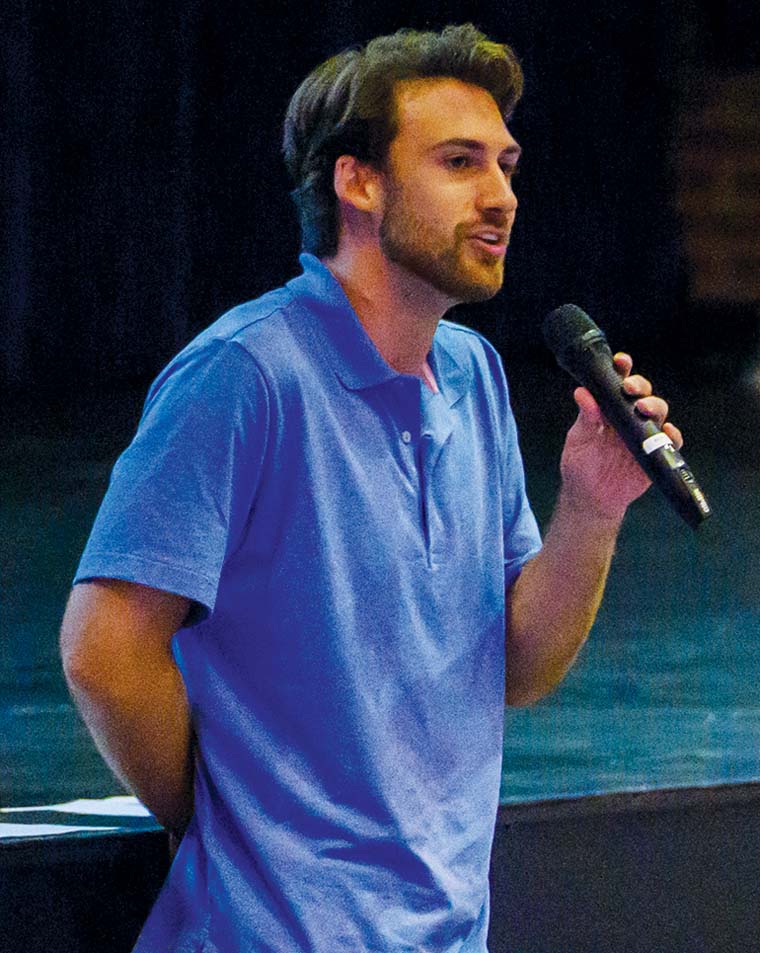
I was in Utah on a ski trip when I heard that we were not returning to campus after spring break. Immediately, I switched into Student Association mode and began calling the other executive officers and our faculty advisors. Before long, we in the Student Association Council and our advisors agreed these circumstances called for a reassessment of our priorities. With the representatives no longer on campus, it would be impossible for the 12 SA committees to continue pursuing their projects and proposals. More importantly, the current circumstances rendered many of our projects temporarily moot. For example, the Technology Committee’s initiative to put printers in the lobbies of dorms is much less relevant if all attention is now devoted to helping students vacate those same dorms.
I would be lying if I said this wasn’t disappointing or even frustrating. Projects we had worked passionately on for months had to be put on hold just when we had been racing to complete them before the transition into a new SA administration. Still, we didn’t have much time to grieve these potentially forgotten projects. The responsibilities of the SA did not stop when we left campus.
We laid out our new objectives as the following: assisting students (as well as the rest of the Harding community) in this transition and maintaining the most essential SA functions remotely. The first objective required that we focus on current dilemmas — working with the Office of Student Life to help students move out of campus residence halls as well as coordinating with the provost to educate students and faculty about online class etiquette and protocols. While these all dealt with current issues, the scope of our other objective focused more on the future of the Student Association.
In one of my first virtual meetings with Dr. James Huff, one of the SA faculty advisors, we agreed that our most fundamental responsibility for the time remaining was conducting a fair and accessible election. We held interest meetings via Zoom, spent hours communicating with all interested students and relevant administrators and staff, and updated our intent to file forms and candidacy petitions to Google Forms so candidates could run for office from all over the world. As I write this, our online election for the SA Council of 2020-21 is underway, and our advisors have informed me that voter turnout is excellent considering our situation. I am glad to say the torch is nearly passed, and the Student Association of our great school will outlast this pandemic.
Moving forward, we will continue doing what we can to support the students and administration during this challenging season. Until the end of our term, we will carry on the types of tasks I already mentioned, and we will almost certainly gain more. The most encouraging part of our situation is this: everyone wants to help. A class of public relations students has dedicated the rest of their semester to helping us keep the student body connected via social media, and I have seen other remarkable acts of kindness and generosity done by people at Harding and in the worldwide community recently. All in all, while none of this is what I ever expected for my closing chapter at Harding, I have witnessed encouraging blessings throughout it. I find solace in Mordecai’s advice to Esther that perhaps our generation was raised for such a time as this.
Michael Krupka , SA president, April 11
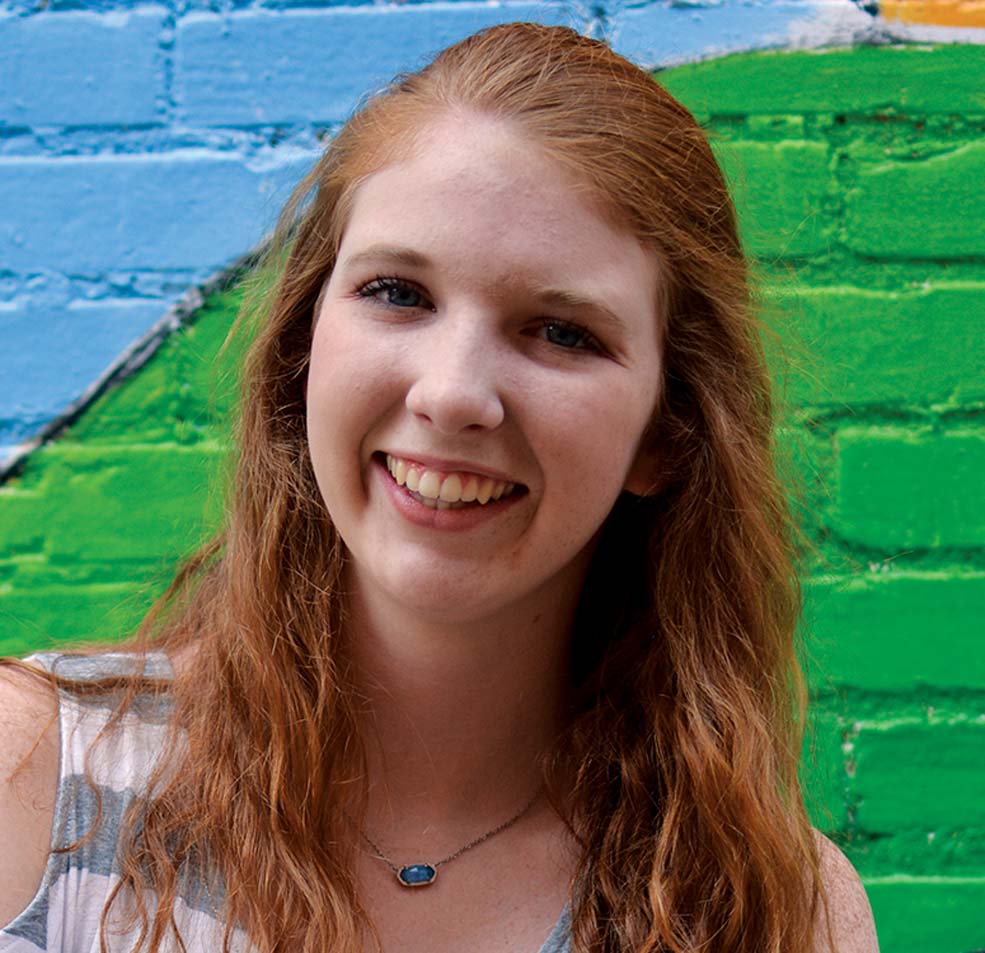
As I saw the email March 12, 2020, asking students not to come back to campus until further notice, I was in disbelief. At the time, it seemed confusing. Why were such drastic measures being taken when I was just at church the evening before? As I continued reading the email, I saw that Spring Sing was being postponed until on-campus classes resumed. While this was encouraging to see, I knew that no matter what Spring Sing looked like, it wouldn’t be the same. However, I knew the producers were doing everything they could to work it out, and as a Spring Sing director, this provided a beacon of hope for me.
A few days passed, and I continuously checked the Spring Sing directors Facebook page. I was on the edge of my seat waiting to find out something, whether it was good or bad. Waiting was the hardest part, not knowing whether I needed to be making a checklist of the things to do as soon as I got back to campus. On March 19, 2020, a week after we had gotten the news about postponing on-campus activities, we got the news about Spring Sing being cancelled. I knew what was coming next: online classes for the rest of the semester.
At first, I was angry. How could this be happening the year that I decided to be Spring Sing director? I had put in a year of work for this show and it seemed like it was so quickly taken away.
As the news came out to all the students about on-campus classes not resuming, my co-directors and I compiled messages for the participants of our show. It was heartbreaking to type our farewells and gratitude posts so soon, but we all knew it was for the best. Past Spring Sing directors, participants and club members reached out to check on us. While the Harding community couldn’t physically reach their arms out and support us during this time, I felt so surrounded. I started to see that this was a
blessing in disguise.
While it was hard to grasp at the time, I am so thankful for a university that was proactive in keeping us all safe. I am thankful for professors who were understanding and patient with us as we adjusted to new routines. Most of all, I am thankful for God because he offers hope for something better. While we are uncertain of the day that we will reunite here on Earth, we look forward to the day we will all be together in heaven.
Brianna Allman , April 12

After I graduated in 2018, I moved to a city in China to teach English. The population of the city was just over 11 million, yet it was relatively unknown to the western world at the time. Nobody would have guessed that a year and a half later my little neighborhood of Wuhan would be the epicenter of a worldwide pandemic.
At the end of December, some of my students told me about a virus infecting people and that I should protect myself. At the time, it was still very new and my students didn’t know how to explain everything in English. Despite not knowing exactly why, I began wearing my face masks more often and spending less time in group settings. I, along with many others, was not aware of the number of people infected and how serious the virus was at the time.
My semester ended following the first week of January. I stayed in China a week longer to travel, and then I went on a preplanned trip back to the U.S. Even though I already planned to go to the states, I was only supposed to be there for a couple of weeks. I only packed one suitcase and a carry-on full of things I didn’t need in China anymore. Almost everything I own is still in my apartment in Wuhan.
Once I arrived in Arkansas, I realized the magnitude of COVID-19. My friends and students in China have been giving me updates daily. Wuhan began quarantine in January. In China, especially Wuhan, quarantining looks much different than social distancing or even stay-at-home orders here in the states. It started with closing public transportation, trains and flights. Then it expanded to instituting specific, limited times people could leave their homes. By February, the government was delivering food to each community — no one could enter or leave. Throughout the past couple of months, quarantining has become more severe.
Through these strict quarantining measures, Wuhan seems to be improving. Starting on April 8, China began to lift domestic travel restrictions. While life seems to somewhat normalize for Chinese residents, foreigners are still restricted from entering China.
This entire situation has been difficult for millions of people for multiple reasons. As for the expats in China, everyone’s struggling in different ways. Some of my American friends are still stuck in their apartments in Wuhan. The rest, including myself, are stuck in the states. Currently, like many people, I am without a job, not knowing when or if I’ll ever return to my second home in Wuhan.
Even though I trust that God has this all under control, that doesn’t make it hurt any less. For now I’m social distancing like everyone else and appreciating my time with family. I still pray that somehow and someday I will return to my Chinese home and my sweet friends in China.
Abigail Cooper (’18) , April 8
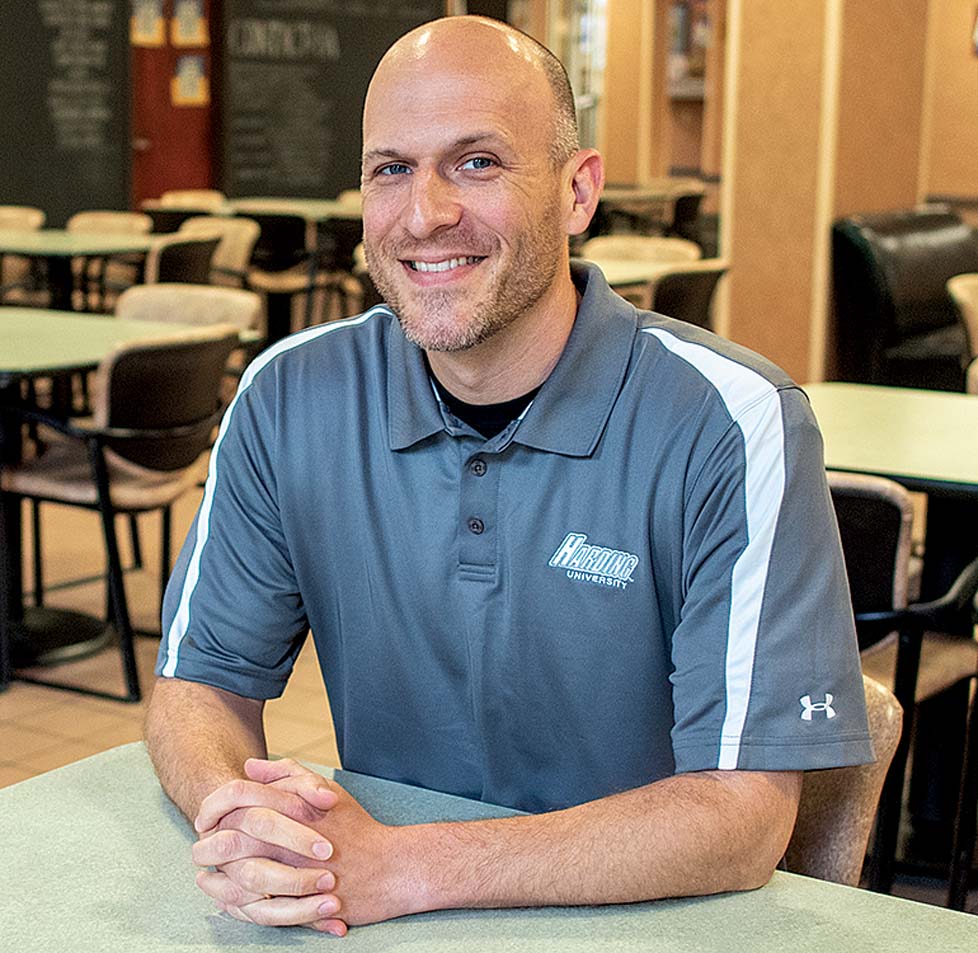
I always anticipate seeing everyone the Monday following spring break. I include a prayer of safety and that all students will finish strong. In this case, it is the truest form of a never-ending prayer. The students are always on my mind but never before at this level as we are all missing the relationship-driven approach to everything we do in the Office of Student Life.
When the decision was made to move to an online format until further notice, IS&T assisted us in having studentlife@harding.edu made accessible by all of the deans. Informational updates were being sent to students via email and posted on the COVID-19 webpage, but every student has a specific, unique situation, thus creating the understandable need to ask questions. We wanted to be able to give personal responses. We received close to 1,500 emails within five days of the announcement. I’m also pretty sure the phone rang every two minutes on that first day as administrative assistants managed and directed each call.
When the decision was made to remain online for the semester, a Google form was created for students to sign up for a day and time frame to retrieve belongings and check out while honoring CDC guidelines. The next major step in our modify and adjust plan was the day it was determined that we needed to suspend the retrieval of belongings for a temporary time with the goal of reducing the risk of exposure for campus, the Searcy community, and to individual students traveling.
We have done our best to respond to the concerns of all students, from the students who did not have another option where to live this semester, those who needed items from their room immediately, and those who needed to work out a place for their belongings to remain all summer.
A huge thank you to the assistant deans who each fielded hundreds of emails and continue to remain immediately available to students near and far, administrative assistants who weathered the immediate response of increased communication and continue to manage normal tasks while being away from the conveniences of the office, residence life coordinators who were ready at a moment’s notice and continue to assist students in the residence halls while honoring CDC guidelines, Residence Life who had to adjust the entire fall housing assignment process, Campus Life who created options for students to stay plugged in via online interactions, games and competitions, and the Office of Disability Services and Educational Access who continue to make sure all students have the support they need.
To our students, we truly miss you being on campus. We are praying for you daily and encourage you to stay strong in your studies. Please look for us on Instagram @HUDeanTeam. We’re hopeful it creates another way for us to stay connected. I’m confident we will all be stronger than ever after we walk through this surreal time together. Please do not hesitate to reach out. Hope to see you soon.
#BisonsTogether
Zach Neal (’01)
,
assistant vice president
for Student Life, April 11
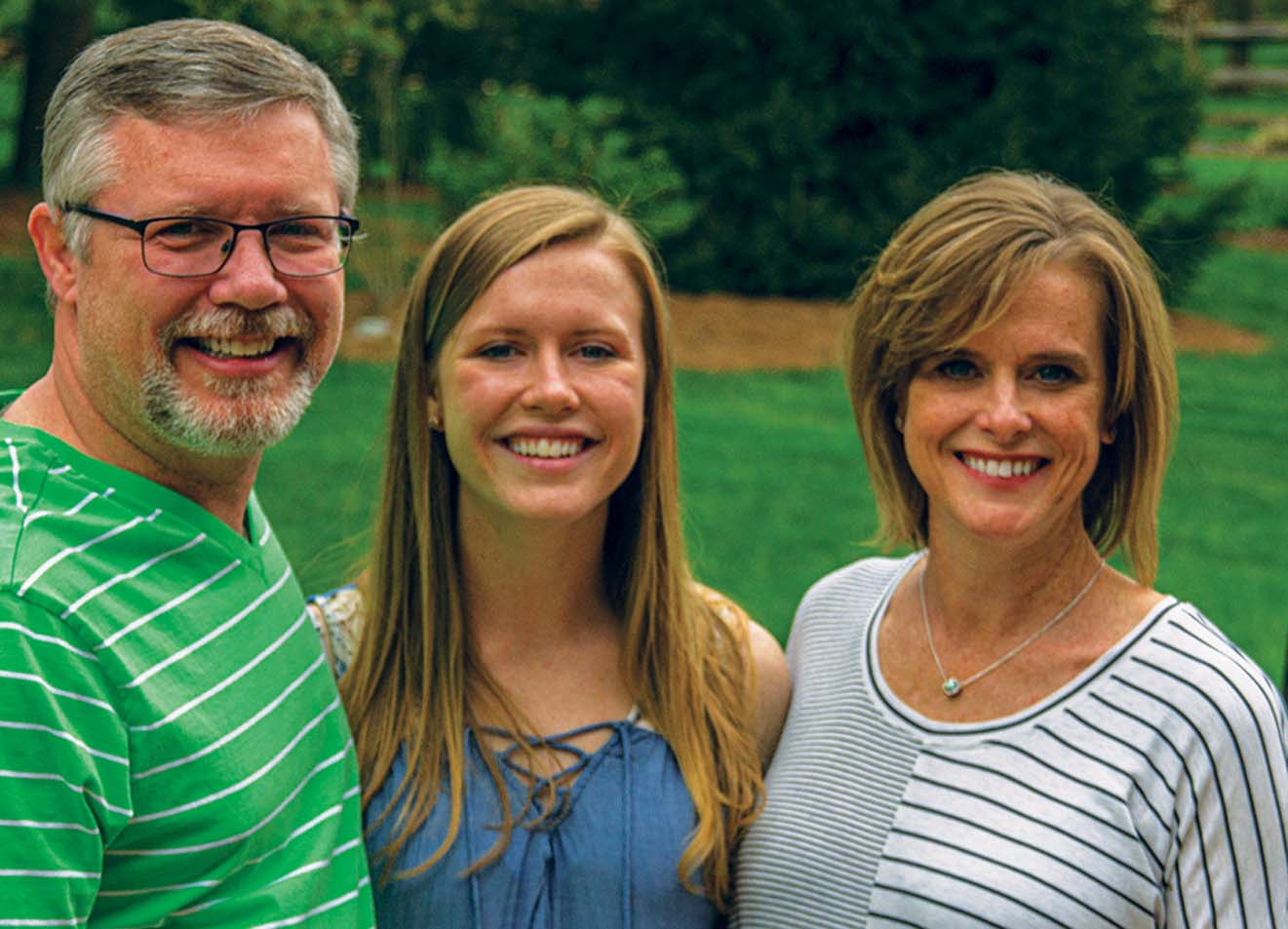
Coronavirus has thrown a big monkey wrench in everyone’s plans. The loss of the last two months of her senior year at Harding is very disappointing for my daughter Hannah, and there is nothing my wife and I can do about it. Our sympathy for her loss is profound. We are all adjusting to a new normal.
As a family physician, I am learning telehealth strategies to meet patients’ needs. Our daughter is finishing her degree from Harding and our other two children are learning remotely, as well. Elearning takes place all over the house, video chatting with family and friends is nearly constant, and even church is remote. Our poor router is pushed to its limits, I am sure.
Being nine hours away from Harding has conditioned us to value our time together and not take it for granted. We also experienced the separation on a greater scale when our daughter went to Harding University Latin America. There is a certain amount of jealousy regarding our time with her. Right now we are loving having her at home! Both of her grandfathers are at high risk due to health issues, so the call to adhere to prevention strategies is especially meaningful at our house. However, there is a bittersweetness to this whole COVID-19 thing.
Being apart from her fiance and other close friends is not ideal, but they are coping. She moved out of her apartment the second weekend in April. There was no celebration or hugging and crying together with her roommates of three and four years and her many classmates and club sisters. There was no four-part harmony in the Benson Auditorium or post-graduation shake at Frozen D’s as in years past. The thing that makes Harding so special — camaraderie — is the thing that is being altered so drastically.
Fortunately, Harding has a way of drawing you back. My wife and I were away for several years after graduation. Medical school and “life” took us away from Searcy, but since our daughter has been a student, the familiar warmth of the campus (though significantly different than 1995) immediately welcomed us back. I suspect each of the 2020 graduates will experience a sense of unfinished business due to COVID-19 forced changes. Thankfully, I know they will each be welcomed back in future visits to campus, as we have been. For our family, our youngest son plans to be a freshman in 2021, so we look forward to many more trips to Harding in the future.
Andy (’94) and Andrea Porter Chunn (’95) , Loveland, Ohio, April 14
The Branding Project is a collaborative project between interior architecture and design , graphic design and integrated marketing communication departments and usually culminates in a gallery display set up in the Art Gallery. This year, the project consulted with the City of Searcy in rebranding and designing expansion of Riverside Park. Mat Faulkner , Mayor Osborne, Buck Layne and Richard Stafford of our city officials met with these students on numerous occasions to fine-tune the brand ideas.
The students had to switch from a gallery exhibit to a website due to COVID-19. This unique transition was challenging, but the finished project is fantastic!
Lori
Sloan (’86)
,
assistant professor of communication